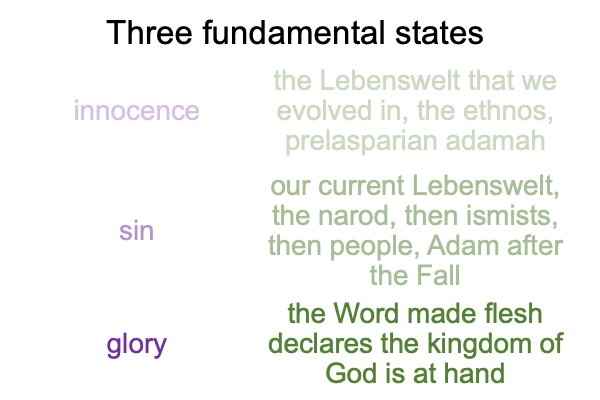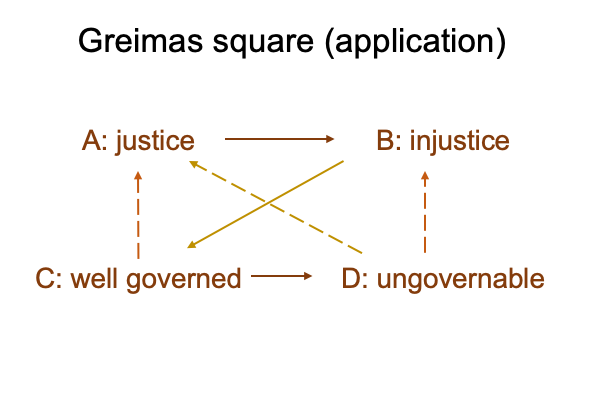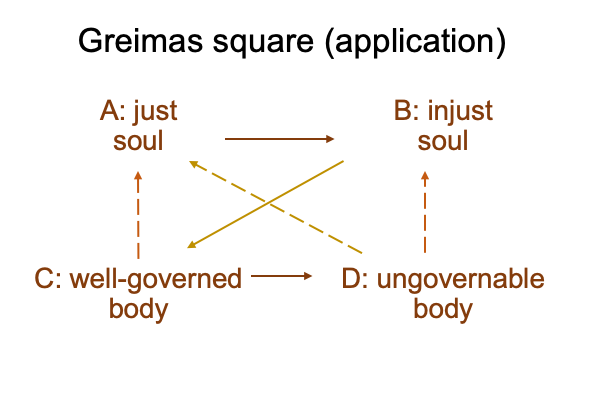0062 In the second section, the author offers a Thomistic account of original justice.
Aquinas starts with the fundamental states of human existence.
Here are my associations.

0063 A state of innocence associates to original justice.
“Justice”?
Yeah, I heard that word used, before. I also heard it misused. After all, any spoken word is simply a placeholder in a system of differences. Shift the system of differences and the word adjusts. If I put the word, “justice”, as the focus (A) of a Greimas square, what do I get?
Perhaps, the following will do.

0064 The focal word (A) is “justice”.
Injustice (B) contrasts with justice (A).
Well-governed (C) speaks against (contradicts) injustice (B) and complements justice (A).
Here, I may add that well-governed includes self-governed.
Ungovernable (D) contrasts with well-governed (C), speaks against justice (A) and complements injustice (B).
0065 How curious.
That seems to work well.
Now, let me turn the nouns into adjectives to further illuminate a distinction hidden within the horizontal dimension.

0066 With this figure in mind, I consider what the author says about Aquinas’s teaching concerning the relation of both (1) prelapsarian adamah to God and (2) of parts within the hominin. As to (1), the highest in the innocent person is subject to God. As to (2), the hominin exhibits a certain rectification of order in interior disposition. The inferior powers of the soul (and body) are subject to the superior.
0067 A well-governed body (C) complements a just soul (A).
0068 While many imagine that Aquinas discusses an idealized philosopher, whose, if I remember correctly, members are supposed to be subject to logical reason, when one starts to grasp that Aquinas’s teaching applies to people, who would scare the wits out of any civilized person, yet would welcome that civilized person as one of their own (and if not that, eat him), then we are looking at, as Graeber and Wengrow put it, “the dawn of everything”.
Or “the dawn of everything that moderns never imagined possible”.
0069 The noble savage is noble because he is innocent?
Does Aquinas’s teaching, applied to the Lebenswelt that we evolved in, predict darwinian social and sexual selection favoring those who are just within their social circles and those who can govern their bodies in ways that modern athletes of all sports would admire?
It is as if each person contains his own society, with diverse factions (parts and appetites and tendencies) that need to be governed (that is, made whole). The challenge requires both material and immaterial (that is, relational) training. The relational entangles the material. The material entangles the relational.
0070 The lesson applies to more than the body and soul of each individual.
It applies to the social circles as well. Social circles work in harmony.
If they don’t, then natural selection works its scythe.
Hominins adapt to survive in Aquinas’s state of innocence.
And, not one of them knows that fact.
